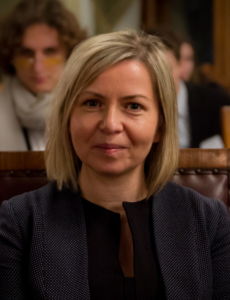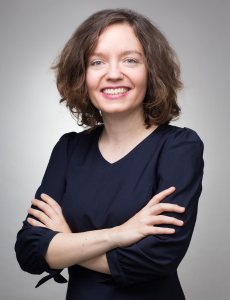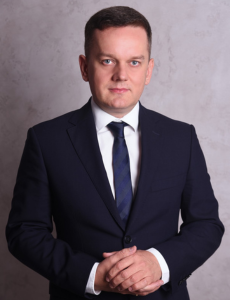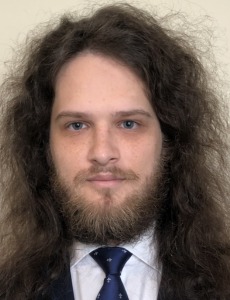The priority of the rule of law over the rule of politics assumes that the rule of law excludes arbitrariness and guarantees negative liberty. This idea could be derived from Cicero’s maxim, according to which “We are all slaves of the laws so that we can be free” (Omnes legum servi sumus uti liberi esse possumus). The doctrine of the rule of law is a necessary condition for democracy and for the liberal state. Thus, it is one of the foundations on which the European legal order is based. Moreover, it is “an inherent virtue of the law” which guarantees stability and security for peoples’ actions (Raz 1979). It provides frameworks for social relations in which people are able to predict and control their own future. Yet, currently, in our societies we face the problem of the rule of law crisis on one hand, and the polycrises which require extraordinary legal measures on the other. Both problems constitute serious challenges to the future of democracy. Therefore, we argue that the rule of law requires special attention and should be the subject of research.
Our research group “Rule of Law and the Future of European Democracy” aims to capture the rule of law crisis and its potential remedies in the European Union (EU). It explores the causes and consequences of Member States’ departure from the principles of liberal democracy and fundamental values and its impact on the protection of rights and freedoms of individuals. It covers the EU’s response to systemic threats to the rule of law. We study the philosophical foundations and doctrinal justification of the principle of the rule of law, together with its normative framework and judicial understanding. The exploration of the impact of the political and socio-economic systems on the rule of law and the relevance of the constitutional plurality for the principle of democracy is also a part of our research. We focus on the crisis of the rule of law analyzed from the perspective of the polycrisis and emergency constitutionalism.

Monika Florczak-Wątor is a Leader of the Research Group “Rule of Law and the Future of European Democracy” (Future Democracy Lab), a Professor at the Department of Constitutional Law at the Faculty of Law and Administration of the Jagiellonian University in Krakow, a Director of the Center for Interdisciplinary Constitutional Studies at the Jagiellonian University, and a Director of the Interdisciplinary Doctoral Program "Society of the Future" at the Doctoral School in Social Sciences of the Jagiellonian University. She received the title of full professor (2021), Habilitation degree in Law (2015), PhD in Law (2004), MA in political sciences, specialization in international relations (2002). She is a co-founder of the Central and Eastern European Chapter of the International Society of Public Law (ICON-S) and a member of its Scientific Council, in addition to being a founder of the Polish Association “Democracy in Practice”. She is also a member of various expert and scientific bodies, including the European Group of Public Law, the Scientific Council of the European Law and Governance School in Athens, the Commission of Legal Sciences of the Polish Academy of Sciences (Krakow Branch), the Legal Commission of the Polish Academy of Arts and Sciences, the Scientific Council of the Wiktor Osiatyński Archive, and the Team of Legal Experts at the Stefan Batory Foundation. She was a member of the board of the Polish Society of Constitutional Law. She is currently a member of the editorial committee of the “Constitutional Review”. She has been the Principal Investigator of several national and international research projects, including those funded by the National Science Center, the Foundation for Polish Science, and the National Agency for Academic Exchange. She has also participated in international projects coordinated by foreign partners, including one funded by the Visegrad Fund. She is the author of more than 160 scientific publications and an editor of two books published by Routledge. Her research interests include human rights, constitutional judiciary, constitutional axiology and constitutional interpretation, and comparative constitutional law.

Kristina Trykhlib is an Associate Professor at the Department of Theory of Law at the Jaroslav Mudryi National Law University in Kharkiv (Ukraine). She has been teaching courses in State and Law Theory, Legal Deontology, Comparative Law, Human Rights, the European Convention on Human Rights, and Legal Writing. Her research interests lie in European integration, harmonization of legislation, rule of law, legal interpretation and reasoning, and human rights standards. She is the author of one monograph and more than 50 scientific and methodological publications in the field of law in Ukrainian, Russian, English, and Polish languages, as well as one of the authors of the Ukrainian Encyclopedia of Legal Terms, which was published in 2016. She is also a Member of the Non-Governmental Organization NAMU – National Association of Mediators of Ukraine. Kristina Trykhlib has taken part in the implementation of international scientific projects and was a Visiting Researcher at Warsaw University, Jagiellonian University in Poland, Innsbruck University (in Austria), and the Polish Academy of Sciences. She was awarded the Diploma of the Winner of the Verkhovna Rada of Ukraine Prize for the Most Talented Young Scientists in the Field of Basic and Applied Research, Scientific and Technological Development in 2018 for her scientific work "Harmonization of Ukrainian Legislation and the EU Law: Approximation of General Legal Terminology".

Marie Gren is a Full Professor of Public Law at the Panthéon-Sorbonne University. She specializes in comparative constitutional law and legal theory. She has taught in various fields of public law in French and English. She has been a visiting Researcher at the University of Tel-Aviv (2013) and Columbia University (2014) and an Erasmus Scholar at the Jagiellonian University in Krakow (2022). She has worked as a Foreign Clerk at the Israeli Supreme Court and as a Public Law Advisor at the French Cour de cassation. She speaks fluent French, Polish, and English and also has a good command of Hebrew and Russian. Her research is focused mainly on constitutional transformations and constitutional education. Her PhD research (published as a book in 2019) dealt with the shift of constitutional paradigms akin to the scientific revolutions described by Thomas Kuhn. The case study of this theoretical analysis was the progressive transformation of French, British, and Israeli systems towards a greater preeminence of constitutional norms, under the joint efforts of judges and legal scholars. She is currently working on a general overview of Legal Traditions, on the evolution of constitutional education in Universities and schools, and on a project of rewriting of the French Constitution by foreign scholars.

Marta Soniewicka is an Associate Professor at the Department of the Philosophy of Law and Legal Ethics, at the Faculty of Law and Administration of the Jagiellonian University in Krakow. She holds PhD in both Law and Philosophy and a Habilitation degree in Law. Her research interests concentrate on the philosophy of law, political philosophy, and ethics, including bioethics. She authored numerous articles, chapters, and books including: Granice sprawiedliwości, sprawiedliwość ponad granicami (Boundaries of Justice, Justice Beyond Boundaries) 2010; Human Genetic Selection and Enhancement: Parental Perspectives and Law (2019), co-authored with W. Lewandowski; After God. The Normative Power of the Will from the Nietzschean Perspective (2017). She is also an editor of several volumes, and co-editor, together with P. Hellwege, of a series Krakauer-Augsburger Rechtsstudien. She is a member of an Editorial Board of the CEE Forum Legal Theory Yearbook; editorial staff of the journal Forum Prawnicze, as well as the Chief Bioethics Committee. She is a laureate of numerous scholarships and awards, among others: the prize of the Magazine POLITYKA for young scholars (2011), and a Fulbright scholarship at the Boston University in the USA (2011). Currently, she is working on a research project on law and emotions.
 Grzegorz Kuca is a professor at the Department of Comparative Constitutional Law at the Faculty of Law and Administration of the Jagiellonian University, Vice-director of the Center for Interdisciplinary Constitutional Studies at Jagiellonian University and an attorney at law and a member of the District Bar Association in Krakow. He became a professor at the university in 2020, Habilitation degree in Law in 2018, and PhD in Law in 2007. He is a member of the International Society of Public Law, the Polish Society of Constitutional Law and the Commission of Legal Sciences of the Polish Academy of Sciences (Krakow Branch). He participated in the implementation of several international projects coordinated by foreign partners, including a project financed by the Visegrad Fund. He has presented papers at many national and international conferences, including those organized by The International Association of Constitutional Law and the International Society of Public Law (ICON-S). He is the author or co-author of more than 140 scientific publications and co-editor of a multi-author monograph published by Routledge and author of papers/chapters published by Oxford University Press. His research interests include the theory of separation of powers, constitutional aspects of public finance and electoral law.
Grzegorz Kuca is a professor at the Department of Comparative Constitutional Law at the Faculty of Law and Administration of the Jagiellonian University, Vice-director of the Center for Interdisciplinary Constitutional Studies at Jagiellonian University and an attorney at law and a member of the District Bar Association in Krakow. He became a professor at the university in 2020, Habilitation degree in Law in 2018, and PhD in Law in 2007. He is a member of the International Society of Public Law, the Polish Society of Constitutional Law and the Commission of Legal Sciences of the Polish Academy of Sciences (Krakow Branch). He participated in the implementation of several international projects coordinated by foreign partners, including a project financed by the Visegrad Fund. He has presented papers at many national and international conferences, including those organized by The International Association of Constitutional Law and the International Society of Public Law (ICON-S). He is the author or co-author of more than 140 scientific publications and co-editor of a multi-author monograph published by Routledge and author of papers/chapters published by Oxford University Press. His research interests include the theory of separation of powers, constitutional aspects of public finance and electoral law.

Jan Adamowski - Ph.D. student at the Doctoral School in the Social Sciences at the Jagiellonian University (programme in the discipline of Legal Sciences). Graduated in law at the Faculty of Law and Administration of the Jagiellonian University (2023, diploma with distinction). His Master's dissertation focused on bicameral parliaments and second chambers of parliaments from a historical and comparative legal perspective. During his studies, he was awarded four times the Scholarship of the Rector of the Jagiellonian University for academic results and scientific achievements. Speaker at scientific conferences on constitutional law.
Associate at the Centre for Interdisciplinary Constitutional Studies at the Jagiellonian University and in the research project ‘Rule of law and independent judiciary: Major challenges for Ukraine and Poland in the context of European Union integration’ (2023-2024). Researcher in the research and didactic project ‘Legislative omissions in the process of judicial application of law’ (2022-2023). Scholarship holder in the research project ‘Protection of human rights in states of emergency. Theory and practice of the Visegrad Group countries’ (2023-2024).
His interests include in particular: parliamentary law, systems of government, comparative constitutional law, constitutional and supranational judiciary, issues of legislation, the boundary between constitutional and criminal law, and European criminal law.

